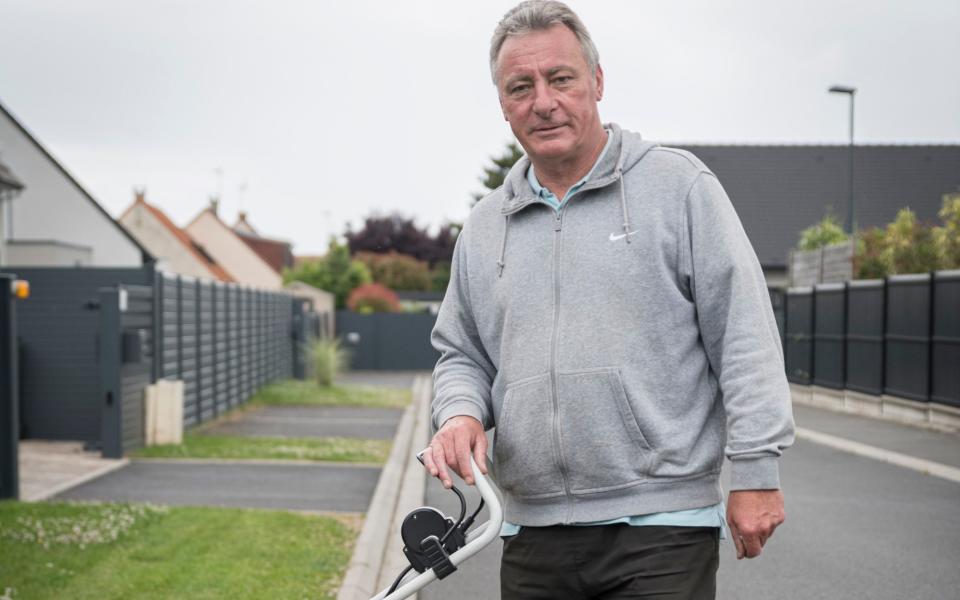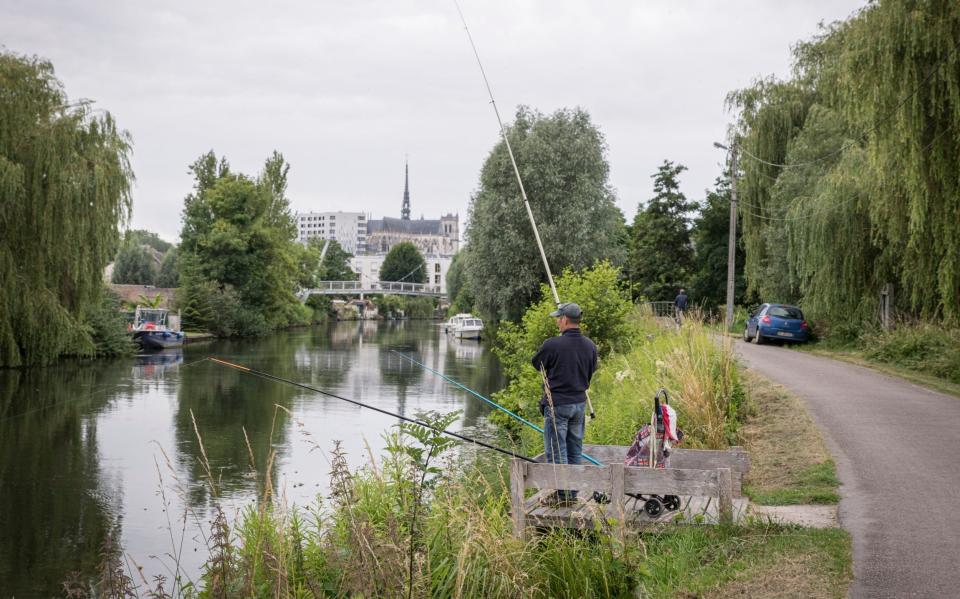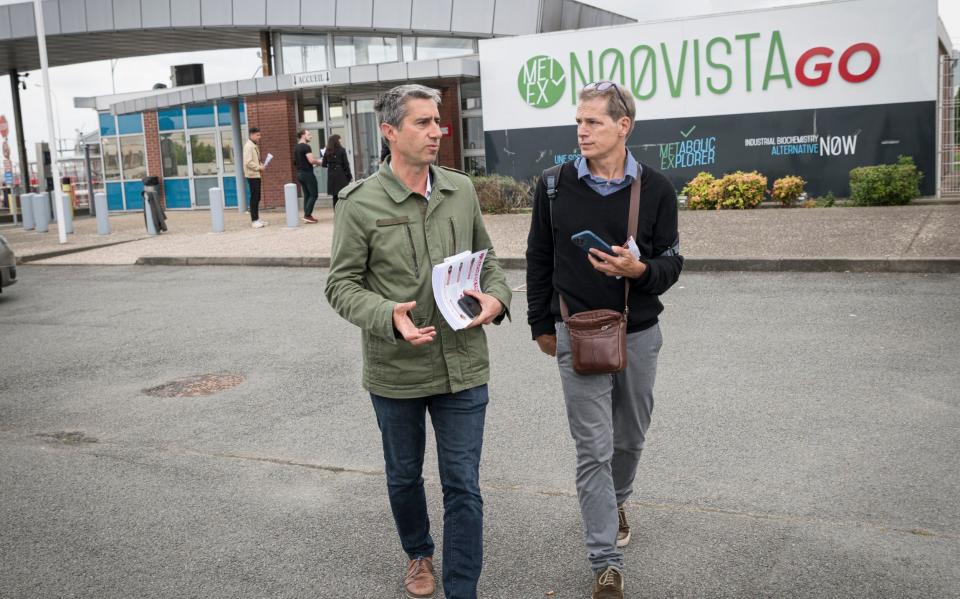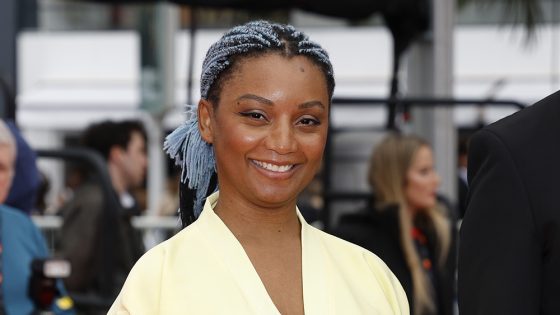As he parked his lawnmower outside his home in Amiens, northern France, Paul Tannin scratched his head.
“I can’t vote for the hard-Left, I can’t vote for the hard-Right. I can’t vote for extremes. For the first time in my life I don’t feel like voting at all.”
With parliamentary elections just four days away and Marine Le Pen’s populist National Rally (RN) predicted to come first, the 61-year-old Vinci executive summed up a moral dilemma that is playing out across France.
“It’s complicated. I’ve always voted in between,” he said in a northern residential suburb of the city in the Somme region.
“I’m going to turn up to the voting booth and if I could choose I’d vote ‘Neither, nor’. That’s not possible, So I’ve got until Sunday to make up my mind.”
With its imposing cathedral and pretty cobbled streets, Amiens is the French equivalent of Middle England. It has long been a bellwether constituency, reflecting both the bourgeois provincial France that dines out on ficelle picarde, the local speciality, but also rundown, “peri-urban” and rural districts whose industry is a shadow of its former self.
Dubbed the Little Venice of the North due to its network of canals, it is now notorious as the hometown of Emmanuel Macron who seven years ago became France’s youngest head of state since Napoleon Bonaparte.
Indeed, its industrial outskirts were the scene of a crucial face-off between Mr Macron and Ms Le Pen during the 2017 presidential campaign when both turned up to a Whirlpool factory threatened with being outsourced to Poland – the latest symbol of jobs lost to globalisation.

As Mr Macron met union leaders, Ms Le Pen gatecrashed the media event to pose with staff out back, declaring herself the true candidate of France’s workers. Mr Macron managed to turn the situation around, helping him win the presidency.
However, the factory has since closed and this month, much of Amiens turned its back on the brilliant young leader who promised change in 2017 as his list was defeated by Ms Le Pen’s RN and the radical-left France Unbowed in the European elections.
The same story played out nationwide as voters deserted the liberal, business-friendly, pro-EU head of state in favour of Jordan Bardella, the 28-year-old RN president now running to become prime minister.
His candidates then suffered a similar fate in last Sunday’s first round of parliamentary elections.
Mr Macron’s rump of loyal supporters are now being asked to hold their noses and vote for hard-Left candidates in Sunday’s second round to keep the RN out and prevent them clinching an absolute majority.
Gunning for one key constituency is François Ruffin, French figurehead of the Jeremy Corbyn-style hard-Left who went to school with Mr Macron but is now among the president’s fiercest critics.
The pair are often described as alter egos.
Mr Macron, 46, famously fell in love with his school drama teacher and ended up marrying Brigitte Auzière, 24 years his senior, becoming an investment banker and then France’s pro-business centrist president.
Mr Ruffin, 48, by contrast, hit prominence as a self-styled Gallic Michael Moore whose documentary Merci Patron! accused France’s richest man of sacrificing French workers to globalisation.
An outspoken activist of the gilets jaunes movement who warned during the revolt that Mr Macron would end up “like Kennedy” due to the hatred he unleashed among the poor, he is now among the best-known MPs of far-Left firebrand Jean-Luc Mélenchon’s France Unbowed party and even seen as a rival to head the movement.


He recently said he would consider being prime minister if his Left-wing alliance, which includes Socialists, Greens and Communists, manages to form a government.
But in an area long a Left-wing bastion, Mr Ruffin is in danger of losing his seat to Nathalie Ribeiro Billet, a 33-year-old farmer based in the countryside north of Amiens, who is running for the RN after she won 45 per cent in round one to his 28.4 per cent.
The Macron candidate in Mr Ruffin’s constituency came third on 23.7 per cent and also qualified for Sunday’s run-off but pulled out of the three-way race and called on her supporters to back Mr Ruffin, saying: “I draw the line between political adversaries and enemies of the Republic.”
As he handed out tracts at a Metex animal feed factory that he recently helped save from closure due to Chinese competition, Mr Ruffin said: “There are a good deal of moderate Left-of-centre voters who will say to themselves that it is better to have a humanist face like the one I have been presenting for seven years now (…) than the face of division and hatred.”
“We have to work to ensure the unity of the nation. So we have to reconcile, we have to appease. We need to bring tenderness rather than brutality,” he told the Telegraph, confessing that his provocative colleague Mr Mélenchon – with whom he has fallen out – increasingly posed a “problem” as he scared off many moderate voters.
Later on Thursday, Mr Ruffin announced he would leave his LFI party if elected in an attempt to secure victory.
A poll by Harris Interactive projects that the RN and its allies will win 190 to 220 seats in the National Assembly, falling short of an absolute majority of 289. The Left-wing New Popular Front alliance, NFP, will secure 159 to 183 seats and Mr Macron’s Ensemble (Together) alliance 110 to 135, it said.
Ms Le Pen on Thursday insisted that an absolute majority was still within her reach if voters turned out in “a final effort”. However, there is speculation a Right-centre-Left coalition could emerge after the election to prevent the RN from taking power.
Drinking coffee outside Jean Trogneux, Amiens’ famed confectioners specialising in prestige macaroons, retired vet Yannick André said she continued to admire Mr Macron, who she knew as a child because she treated his grandmother’s much-loved poodle. Brigitte Macron is heir to the Trogneux confectioners.


She was relieved that in her constituency, the Macron candidate had disobeyed party orders and refused to pull out in the second round against the hard-Left and hard-Right candidate. “If he hadn’t I would have cast a blank ballot,” she said.
However, outside the comfortable, middle-class area, others had more trenchant views.
Jean Binot, 72, a retired mechanical worker, had come to town from his small rural village inside the constituency to pick up provisions from a food charity.
Resting on a bench as the rain started to fall, he said: “Listen. Prices are rising. They claim unemployment is down but I don’t believe it. Thousands like me have to get by on €800-1,000 per month.”
“Mélenchon’s a mad drunkard. Ruffin isn’t like that but can you really see the Socialists, Greens and Communists all getting on? They hate each other.”
Echoing another oft-heard complaint, he said crime was increasing. “Not a week goes by without a 12-year-old girl getting raped, often by foreigners. We need more authority.” Had he had any trouble. “Oh no, but we hear about it.”
“I’m voting for Ribeiro, the RN candidate, like seven out of ten people in our village. We tried the Left, it didn’t work at all. We tried the Right, it was even worse. We’re going to try Marine and see what happens. Not much will happen at first, but in three years, she’ll be president, then we’ll see real change.”
Source Agencies


